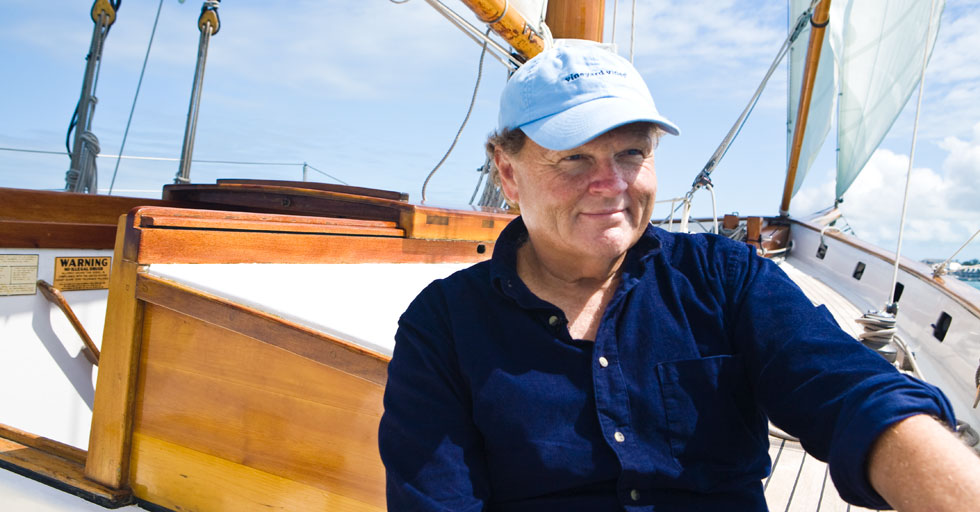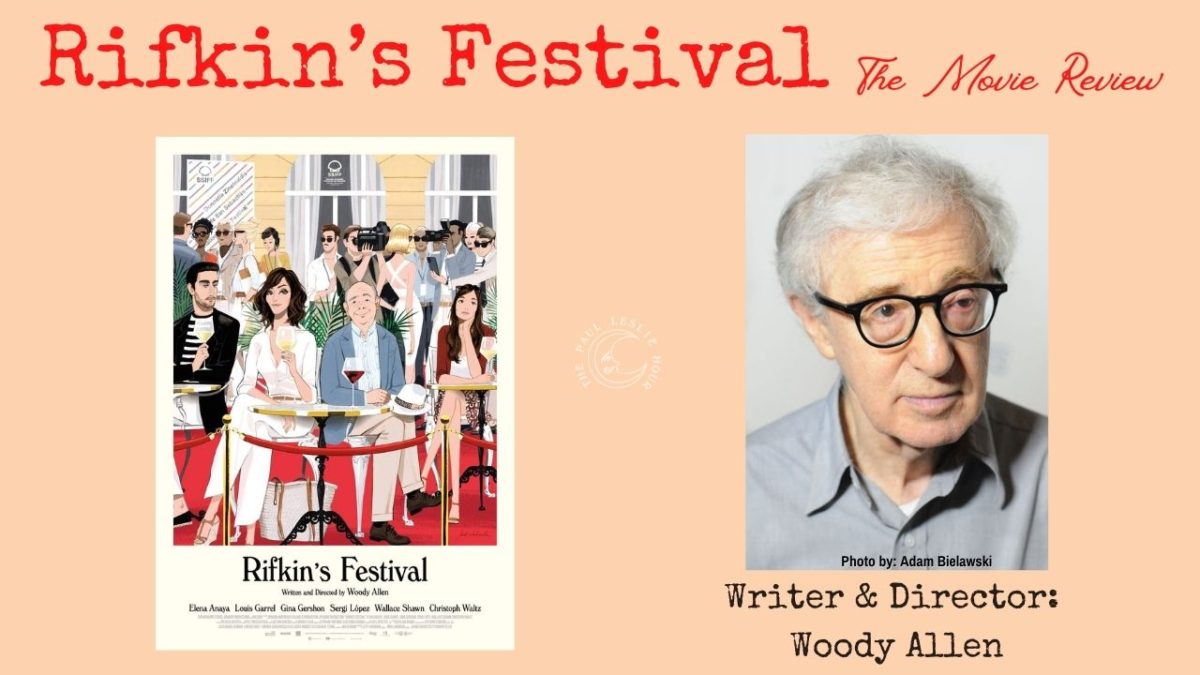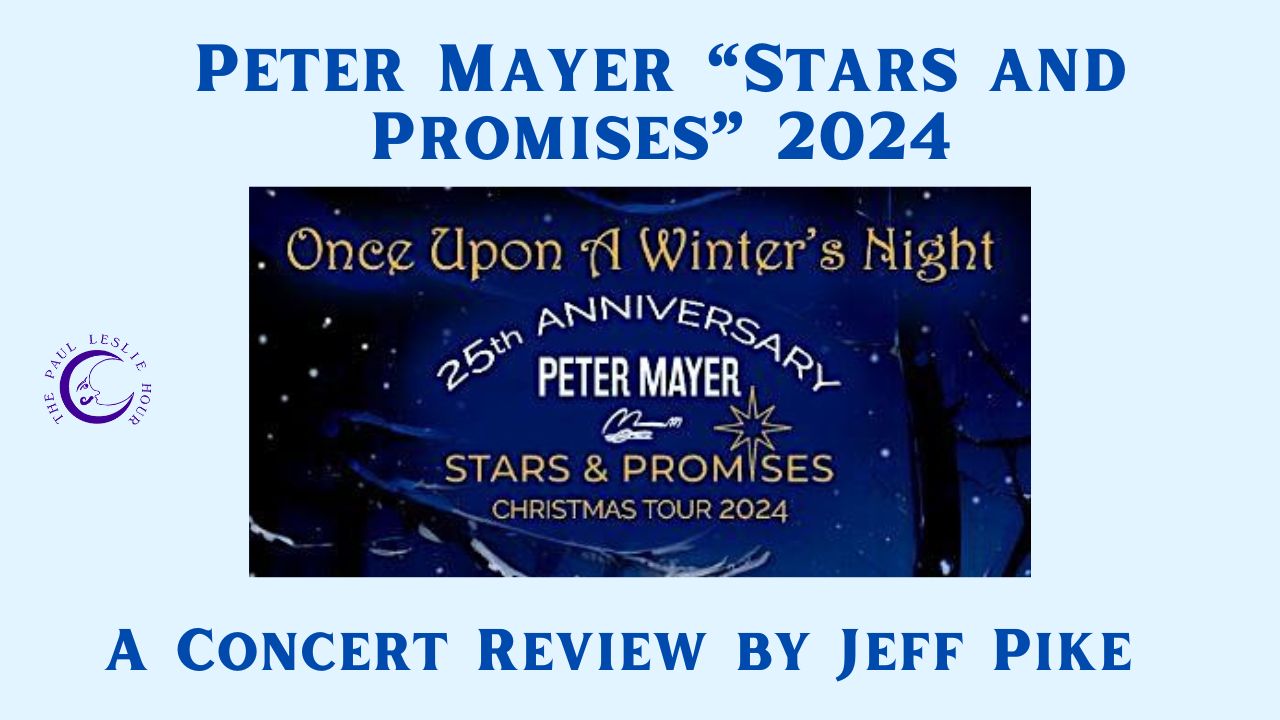Scott Kirby is a philosophical songwriter, conversational performer, and pensive humorist. You’ll really enjoy having the barstool right next to him. Here’s a bit of what I’ve learned from and about Mr. Kirby through the years. There’s a lot of background information and my thoughts on his recent show at The Roasting Room in Bluffton, South Carolina.
Kirby performed at the Roasting Room
I’ve seen very few singer-songwriters who were able to take the stage alone, as a solo performer, and have the entire audience in the palm of their hands. Seeing Scott Kirby take the intimate stage of the Roasting Room Lounge & Listening Room on May River Road in Bluffton, South Carolina left me thoroughly impressed.
First, a word about the venue. The Roasting Room is the perfect place for acoustically-oriented singers. It was my first time there and I loved the room. Talking with Kirby before his show, he made sure to point out that they have a hundred types of whiskey available. “It is wonderful,” Kirby remarked. Seeing a show at The Roasting Room in Bluffton felt like a somewhat sacred experience, or as sacred as one can feel while swirling a giant ice cube around a whiskey glass.
Kirby sings, plays guitar and harmonica
The only artist from my recollection who felt equal to Scott Kirby as a solo performer was John Sebastian. Perhaps I think of Sebastian because both play the guitar and harmonica at the same time. If you’ve seen Scott Kirby live, consider yourself lucky.
The thing I like about Scott Kirby is that all too often he describes something serious with a bit of humor. And so often his humorous songs cause you to think of the profound.
Influenced by best singer-songwriters
It was a great evening enjoying Scott Kirby on the stage. You can detect all of the best elements of his influences in his song and in how he approaches a performance. Scott Kirby’s sound and style have elements of John Prine, Tom Rush, Steve Goodman, Gordon Lightfoot, and James Taylor. There’s even a bit of Dylan it seems. Scott Kirby is clever, but also an original. It never seems like he’s copying anybody.
Third interview with Kirby is coming
I had the opportunity to do my third interview with Scott Kirby, and this time we captured Kirby on camera. Until it gets out there and into the world, I wanted to share something I wrote. It’s part profile, with a bit of musical review. There are a lot of biographical facts about Kirby and there are also some quotes from Peter Mayer and the late Hugo Duarte.
It was great to do the interview face-to-face. There’s a bit of mischief in his seriousness and you can see it on his face. And there’s plenty of depth in whatever makes Kirby laugh.
Until the interview gets out there, you’re invited to read my take on Scott Kirby, a songwriter extraordinaire and an artist on the Little Flock Music record label. Pick up his albums, they are real poetry.
SCOTT KIRBY — A Lucky Man
“I’m not on the airwaves…I’m right here by the blue waves… and only that crazy heron knows my songs..” —Scott Kirby
As a guitarist, singer, humorist, and songwriter, Key West is a prevalent part of Scott Kirby. Scott Kirby is a music-poet with a little bit of that crazy island coming out in his words and music. Whether he is singing a jolly barroom chant or belting out a mournful tune, his unique voice and pensive style has made many people come to appreciate his style. He’s very hard to compare to anyone else.
Hearing the Beatles
Music for Kirby started at a very young age. Like so many others of his generation, the Beatles played a part in his early music appreciation. At ten he was already playing drums and by twelve he had picked up the guitar. It was a mere hobby to Kirby, but by high school, it was becoming more serious. In his early 20s, he had picked up the bass guitar, but a few years later he had no musical instruments. It wasn’t until he was 31 years old that he got an acoustic guitar and was back in the game. He started playing gigs…consisting of cover tunes in small clubs and bars and ski areas among other places.
Visiting Key West
He carried on with a professional life like most people. A few leisurely trips down to the southernmost point in the United States—Key West; would later lead Scott Kirby to a career as a musician. “I had been down to Key West a half a dozen times,” Kirby remembers. “When I visited back around 1985 it wasn’t nearly as busy as it is now. I remember going into Captain Tony’s, Sloppy Joe’s, and Pepe’s Cafe, but it’s nothing like it is now. There is very little in Florida like Key West. The weather was so much better. It was the funky attitude, but what I really loved about Key West was the architecture, water, and weather.” Kirby was in dire need of a change. Thirty-three years old, single, and working as a political consultant in New Hampshire for 8 years. As Scott Kirby puts it, he was “sick of the cold weather.”
Kirby takes the plunge
“I remember waking up, getting a legal pad, and trying to sort out just how much money I needed to survive. I went into the State House and gave two months’ notice.” You could say that Kirby had hit the fork in the road and took the road less traveled. When you throw a little caution to the wind, you aren’t always on easy street. “I was frightened,” Kirby reminisces with a chuckle. “I knew a few people, so I started calling clubs and sending my resume.”
In November of 1988, Kirby auditioned at the Pier House. “I set up and like that, I had a contract to play there. I was quite ecstatic to get a gig. I played a lot of covers, but one song clearly in my mind was an original called ‘Hey Mr. Lighthouse.’” As a Fresh Water Conch or newcomer to Key West, Kirby remembers it as an escape. “I wondered if it would be a lifelong career.” He performed throughout the winter, but when springtime came, he was off to other tropical destinations. Kirby went to Bermuda to play a gig for six months. It didn’t offer the peace that Key West did. In 1989 he was back to the laidback life of the Florida Keys. Despite the leisurely atmosphere of Key West, he wasn’t exactly taking it easy. “I had my old job back, but I was evolving. I was playing six or seven nights a week. I was getting bored, so I decided to start writing some more songs.”
Meeting Mayer Brothers and Roger Guth
It was circa 1989 that Scott Kirby met the PM Group (Peter Mayer, Jim Mayer, and Roger Guth). Sometimes known as the Peter Mayer Group, they had recently been brought into Jimmy Buffett’s Coral Reefer band. Elliot Scheiner had been hired to produce the Buffett album “Off to See the Lizard.” Because of the musical ability of the PM Group, Scheiner suggested their use for the studio work of the album. “I recall seeing them perform at the Margaritaville Cafe,” Kirby remembers. “I loved their musicianship. Back then, nobody knew them.” There were maybe ten people in the audience, but their songs were exceptional.” At the time, J.L. Jamison ran the music at Margaritaville. “He was a kind of entertainment director,” Kirby explains. “He introduced me to them.”
Kirby has had a close musical relationship with the Peter Mayer Group since this meeting. Kirby remembers early sailing adventures with Peter Mayer and Roger Guth. Kirby chuckles: “They weren’t water people. They had never been on a sailboat and it was breezy.” Kirby has fond memories of times with the PM Group. “They knew I was a struggling songwriter, and we became friends.”
“Too Damn Yankee”
In 1992, Kirby decided it was time for a debut album. His old friend J.L. Jamison was basically in charge of Shrimp Boat Sound, the studio that Buffett owns and uses in Key West when recording his albums. Jamison knew the studio was seldom being used. He notified the powers that be that he had a local musician who was interested in utilizing the studio. “They came to an agreement, and in the end, Shrimp Boat Sound was where the album was recorded.” The album seems to have two opposing sides. Although the mellowness of Key West is prominent, it also conjures Northern latitudes, like New England. The album was called, ‘Too Damn Yankee,” after one of the album’s tracks. Kirby was renting a room in the house of a Key Wester named B. J. Martin. Kirby recalls “We can’t believe we’re living with a damn Yankee,” coming out of Martin’s mouth.
The album had a lot of talented and interesting folks who contributed to it. Two of the musicians who appeared on the “Margaritaville Cafe Late Nite Menu” were featured: Bill “The Sauce Boss” Wharton and former Coral Reefer Nicole Yarling. Wharton played washboard and Yarling the fiddle. Singer-songwriter Jonathan Birchfield, who has worked as a guitar technician for Jimmy Buffett played electric guitar on the album. Peter Mayer, Jim Mayer, and Roger Guth also played on the album.
Kirby’s songwriting can be extremely pensive on this album. Kirby reflects on “Majestic Pain,” which he wrote with Mark Harder. “I had a friend in the yachting business. He was extremely rich. It’s amazing that someone can be so wealthy, but be so miserable. He was missing reality. When there is no struggle, there is no real gain.” Despite such honesty about the realities of some of humanity, the album can also be joyous. The song “Blue Sky Day,” was inspired by the Russell Banks novel Continental Drift. “The book is about a move to Florida, so I could definitely relate.” “The air looks brighter in those postcard scenes. Southern winters seem soft and green.”
His playful song “Hey Mr. Lighthouse” finds a strong meaning in a lighthouse and a look at the past. It’s half wistful, and half a fond memory. “Who’ll keep the yuppies from making you a condo, when your island gets sold.” Kirby has a kind of fear of what we give away in the name of progress. You can’t miss what you don’t give away.
The album was released in 1993, which coincided with a marriage for Kirby. He was playing 225 shows per year but began going on the road some. He played bars in places like Richmond, Virginia, and other places. In 1994, Kirby was playing even more, still at the Pier House, but occasionally also at the Margaritaville Cafe and at the Hog’s Breath Saloon. Kirby began performing with Peter Mayer. Kirby remarks: “He’s one of the most incredible people I’ve ever known.”
“Bank of Bad Habits” ?
In 1995, Kirby was selected to work as a guitar technician on Jimmy Buffett’s “Barometer Soup” album. Peter Mayer, Jim Mayer, and Roger Guth were to write songs, initially inspired by Mark Twain novels. Scott Kirby is credited with being part of the inspiration behind the song “Bank of Bad Habits.”
Kirby has a lot of Buffett tales. During the recording of the “Banana Wind” album, Kirby was allowed to meet and watch James Taylor. “He was there for the ‘False Echoes,’ song and it was a closed session. I got to meet him and it was a huge thrill.”
Buffett at the Irish Pub
One of Kirby’s favorite stories about living in Key West and knowing the Peter Mayer Group involves an Irish Pub.
“One night after [Buffett] and Peter [Mayer], Jim [Mayer], and Roger [Guth] had done a show at Margaritaville, Jimmy decided to stop over at the new Irish bar in town. I think it was about 2:00 AM when we arrived. There were about 25 people in there and the Irish musicians had quit for the night.
There was a beautiful Irish girl named Maria who bartended there and in her sweetest Irish brogue said to Jimmy: “Mr. Buffett, it would be lovely if you might play a few tunes for us, we’d be quite honored.” Within seconds, Jimmy was on the stage playing and I’ll never forget there was this big fishbowl tip jar in front of the microphone stand and people were dropping dollars into it while he was playing. It was hilarious!
A few seconds later, Jimmy broke into “Fire and Rain,” and while he was playing, 2 tourist couples walked in the door, which was right next to the small stage. The first girl looked at him like he was any other Key West performer trying to get through his last set. When she was right in front of him, she did a double take, threw her hands to her face, and nearly fainted.
Next thing you know, Peter Mayer grabbed a guitar and joined Jimmy along with a great Irish fiddler named Bobby O’Donovan. Not to be outdone, Jim Mayer walked 4 blocks back to his room, grabbed Bessie (his stand-up bass), and carried it back to the bar to join the jam session. It was truly a remarkable evening.”
“Grand Bar Schemes”
1996 saw the release of Kirby’s second album, “Grand Bar Schemes.” The title track, “Grand Bar Schemes” was inspired by an old sailor in Pepe’s Cafe who dreamed of sailing around the world. Stories in bars seem to get better every time they are told. The boat he planned on sailing the world on had no mast or rudder. I suppose it was just “another grand bar scheme.”
Kirby produced the album with Dan Simpson and contains an impressive array of contributors. Drumming legend Russ Kunkel (who has produced and played on albums for James Taylor, Bob Dylan, Dan Fogelberg, Jimmy Buffett, B.B. King, and many others) wrote the song “Smallest of Islands” with Kirby at the Afterdeck Bar in Key West.
The song “Ghost Towns” was inspired by a visit out to the American West. Kirby was not delighted to see fast food restaurant chains. “I was really appalled to see franchises. I find it a little depressing.” Kirby seems to want to preserve disappearing Americana wherever he goes.
“The Last Flying Boat” is one of the stellar tracks on the album. “I got the idea for the song after seeing a documentary on an old seaplane from Africa. A month or two later, we were in the Four Seasons Bar in Boston when we ran into Buffett. I told him about the song and he thought he had heard about it. Peter [Mayer] helped me finish the song and we pitched it to Jimmy.” So far it hasn’t been recorded by Buffett. Yet.
One of Kirby’s most powerful songs, “Lucky Man” appears on this album. Kirby describes it as a song that is about the good and bad of being a musician. “I’ve got a guitar that God would kill for, Got a little tree house at heaven’s door and fifteen bartenders know my name.” Kirby explains: “…I’m talking about two incredible guitars. These were James Olson guitars, the same that James Taylor uses. I used to say: “God would kill for this guitar.”
The song “Free Range Institution,” is about Key West. “It’s a crazy place, and many have said Key West is an open-air mental institution.”
The ‘Scott Kirby sound’
“I was starting to try and make my own ‘Scott Kirby sound,’ a folk sound It’s folk rock, and a little contemporary folk and I guess beach folk. It’s hard to pigeonhole. I have a little influence from John Prine, Jerry Jeff Walker, James Taylor, Steve Goodman, Jimmy Buffett, Harry Chapin, Jonathan Edwards, and some Gordon Lightfoot. I was getting my sound, but I was really pushing my career.”
“Walkin’ on Thin Ice”
It was in 1999 that Kirby released his third album, “Walkin’ on Thin Ice.” The title track of “Walkin’ on Thin Ice,” is about martial issues. “As far as I’m concerned, if you are walking on thin ice, you may as well dance.”
The song “The Sweet Flowers of Cuba,” was written with singer-songwriter Hugo Duarte who lived in Key West at the time… Kirby wrote much of the song while passing past Cuba. The song is a mournful look at the young women of Cuba, many of whom are forced into prostitution.
Duarte had an appreciation for his musicianship: “Scott keeps on working at his craft, his sound, his technique, and his writing. I admire people who never sit still, those who keep striving for excellence in their lives and in their art. I think Scott does exactly that.”
“The Dorymen” had blues-folk musician Gove Scrivenor as a featured singer. A dory is a small, narrow fishing boat.
“And they’ll row you off to England, and they’ll row you off to Spain. They’ll row from Block Island east to Maine. They’ll row you around the harbor till all the beer is gone, and get you safely back on board by dawn.”
Kirby was inspired to write the song “The Sun Never Came Up,” upon hearing the news that Carl Wilson of the Beach Boys had died. Kirby remembers: “I always loved them [The Beach Boys]. I was in a Palm Beach hotel bar when I heard the news. At around 5:00 in the morning, I took out the notepad in the hotel room and wrote most of the song.
Kirby wrote the song with Roger Guth, who had become a close friend. “Roger has an edge to him. He writes beautiful songs and there is a sense of human experience in them. He is extremely perceptive. He’s one of my favorite people to drink with… He’s sarcastic and he can be a wise-ass.”
Kirby makes another move
Kirby continued to perform in Key West. In 2002, he did something that may puzzle people, but it made perfect sense to Kirby. After performing for a full 14 years, and having played over 3,000 shows… he was facing burnout.
He moved back up to New Hampshire. Although Kirby still lives on the coast, he says it compares to Key West. “Key West is surrounded by water, but it’s not really a beach town.”
“4 Good Dogs”
In 2003, Kirby decided to release his album “4 Good Dogs.” Kirby says that his album shows a different side of him. “This album shows somewhat of a sarcastic edge and a sometimes depressed side.” It features many skilled musicians including the Massacoustics and Deanna Bogart. Bogart’s piano playing adds a bit of intensity to the song “Not Getting Older (Just Getting Bitter)”
The title track is about appreciating man’s best friend. Kirby recalls walking with his dog and realizing that if you had a good dog, what do you really have to complain about?
The best song on the album is “Lucky Enough,” which Kirby says was inspired by a piece of artwork that Maggie Ruley created which has an inscription that reads: “If you’re lucky enough to live by the sea, you’re lucky enough.”
The song “My Cathedral” is a clever song about the significance of bars. “During 14 years in Key West, I rarely made it to church, but there was one midnight mass I seldom missed. My midnight mass was drinking at Louie’s Backyard.”
The album seems to be even more reflective and insightful than his other albums.
While Kirby is not in Key West full-time anymore, he’s still living the coastal life and performing wherever he can. For this genre of music, his lyrics are undoubtedly thoughtful and deep.
When asked what the future has in store, Kirby says: “No telling. I may move back to Key West eventually.” Then he laughs. “I’ll probably get burned out again and go back, or at least make it down there a lot more. I will probably end up writing some more songs and performing.”
Hugo Duarte on Scott Kirby
A lot of musicians and fans alike say that his personality and humbleness are a big draw. Songwriter Hugo Duarte remarked: “I think his sense of humor is one of his great traits. He also has a gentle quality in his personality that makes him instantly likable. Scott is genuine….meaning that, in my mind, the Scott you see on stage is exactly the same Scott you encounter in any social setting that is unrelated to the ‘business.’”
Peter Mayer on Scott Kirby
Songwriter Peter Mayer echoes these claims: “…He has one of the quickest wits I’ve ever encountered. He’s a funny man but doesn’t stop there when pouring his wit into a good lyric. You could, just the same, expect to hear him play a heartfelt ballad, or a rock ’n roller, often drawing from his love of the coastal life, spanning from Maine to Key West. Take some fine guitar sounds, blend them with melodies you want to sing again and again, and a lyric you can’t get out of your head, and that would stand as a pretty good description of Scott Kirby to me.”
Scott Kirby is captivating
Whether you are in New England or chilling out in Key West, you can count on Scott Kirby to captivate you with his very distinct voice and story songs. It seems that wherever Scott Kirby may roam, he will always share some of what he sees with us in his songs, giving us his unique taste of Americana and a taste of the coastal life he loves so much.
“The moon is the spotlight, the surf is the band, the stars are my audience on this stage made of sand…” “Lucky Man,” by Scott Kirby



